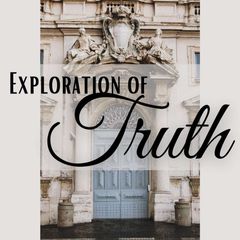The Last Man Who Tried to Know Everything
Athanasius Kircher lived at the crossroads of collapse and curiosity. Born in 1602, he watched the old world buckle under war, plague, and religious fracture—and answered with relentless observation. He studied volcanoes by lowering himself into Vesuvius. He collected fossils, built machines, mapped languages, and wrote more than thirty volumes on everything from magnetism to ancient Egypt.
But Kircher wasn’t a generalist. He believed the world was connected—that music, light, language, and nature were all part of one continuous system. His work reads strangely now, because it doesn’t separate disciplines the way modern science does. In Kircher’s mind, the world wasn’t meant to be taken apart. It was meant to be read.
He made mistakes—many of them—but he left behind something rare: a model of knowledge that wasn’t extractive. One that tried, however imperfectly, to hold wonder and structure in the same hand.
Follow @historiaocculta













